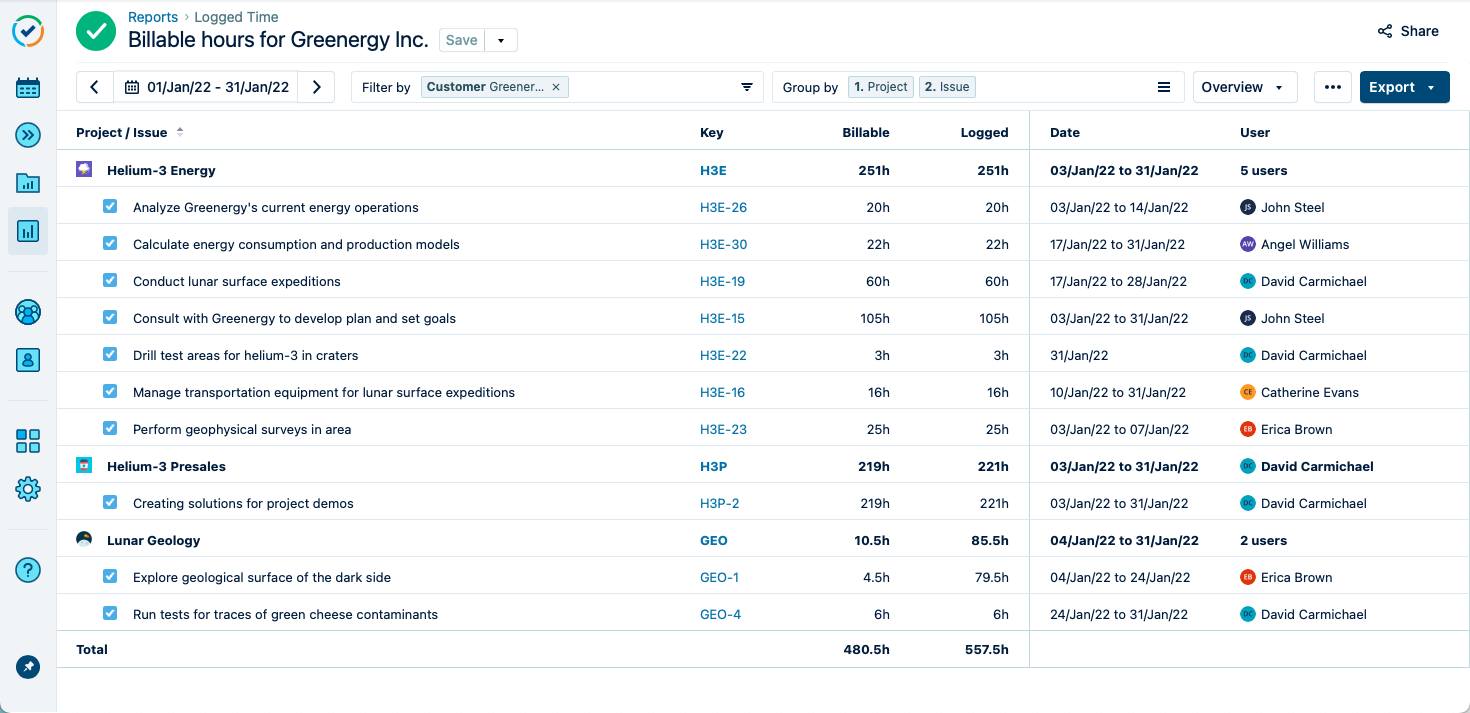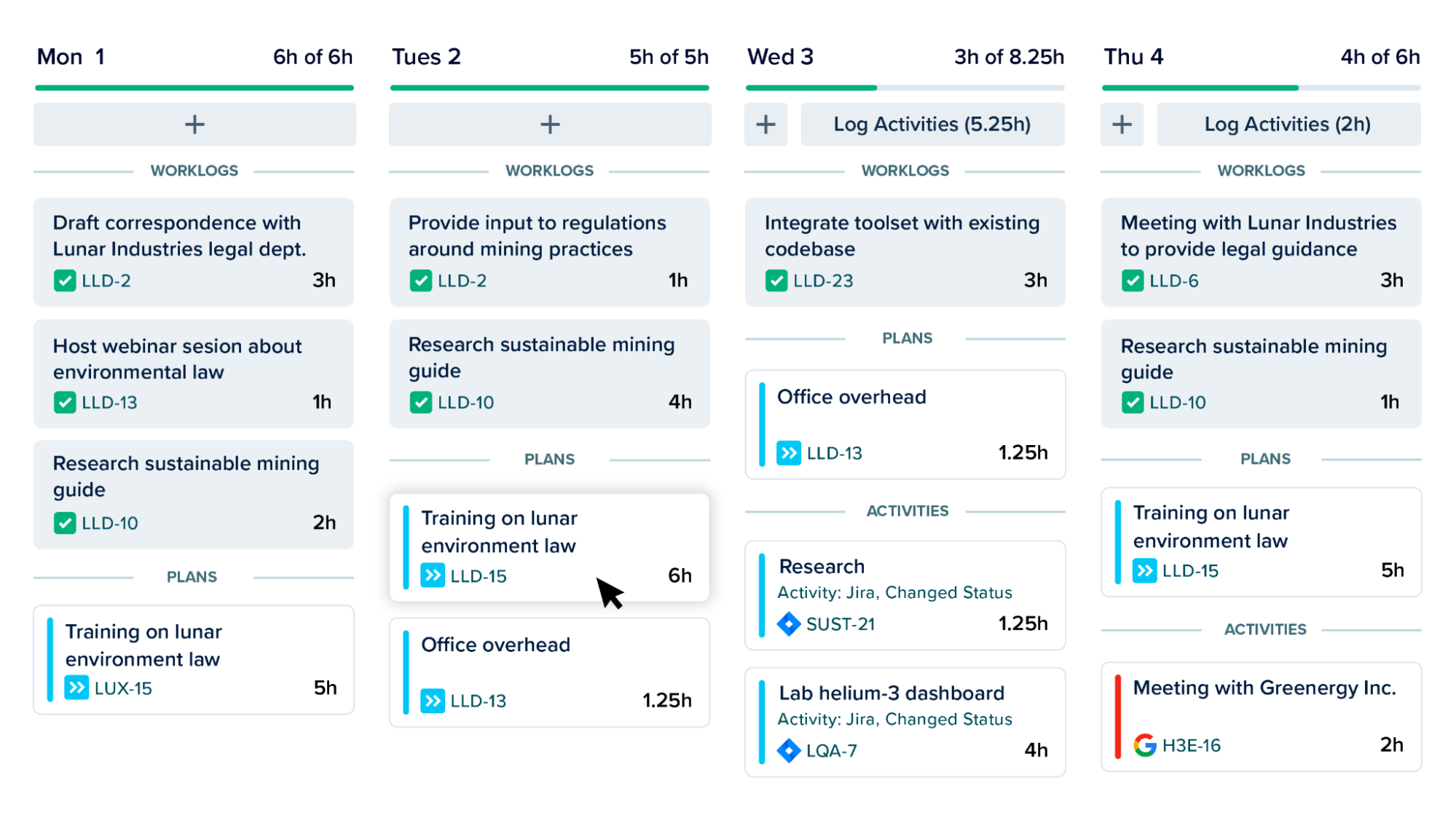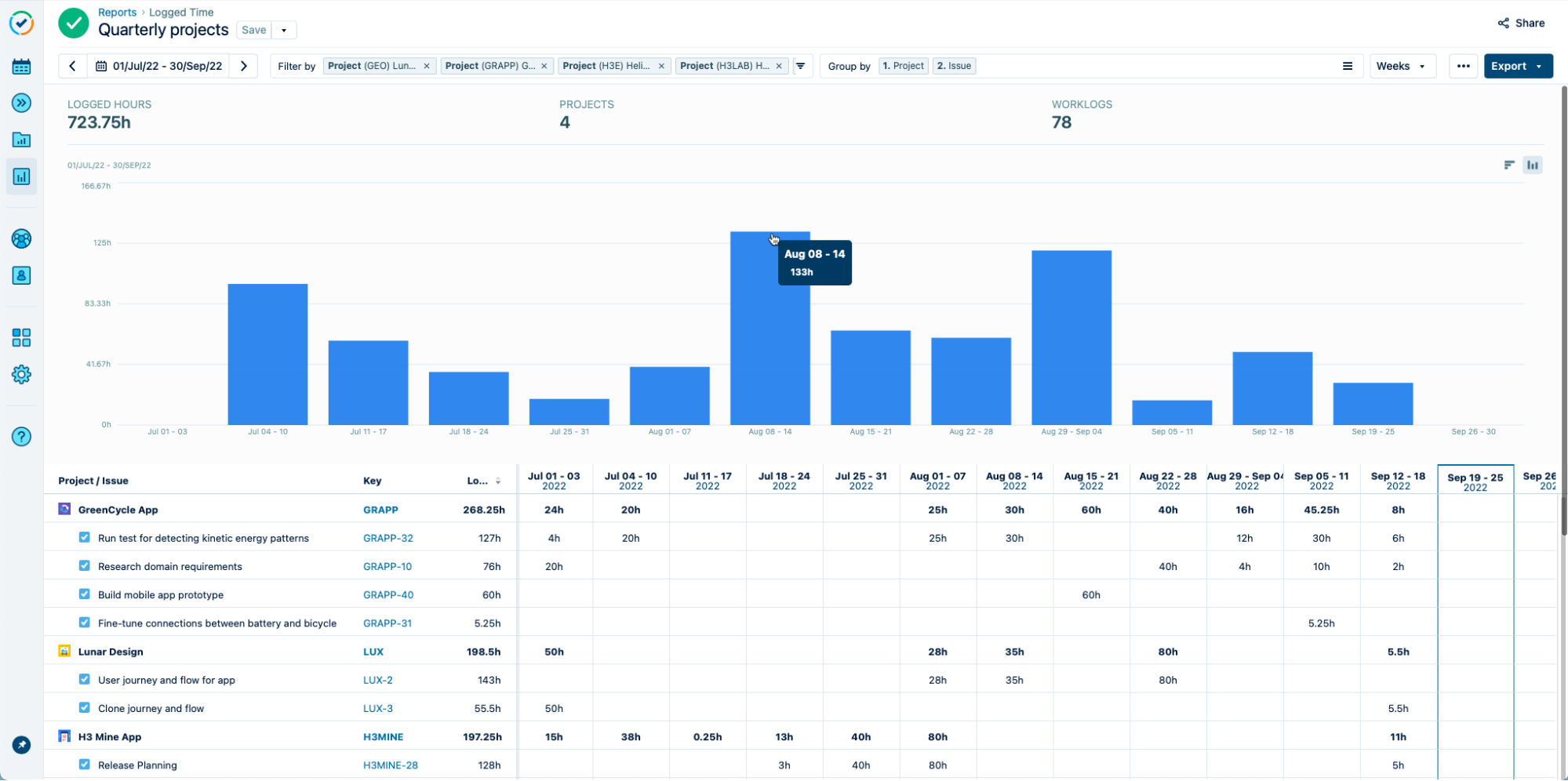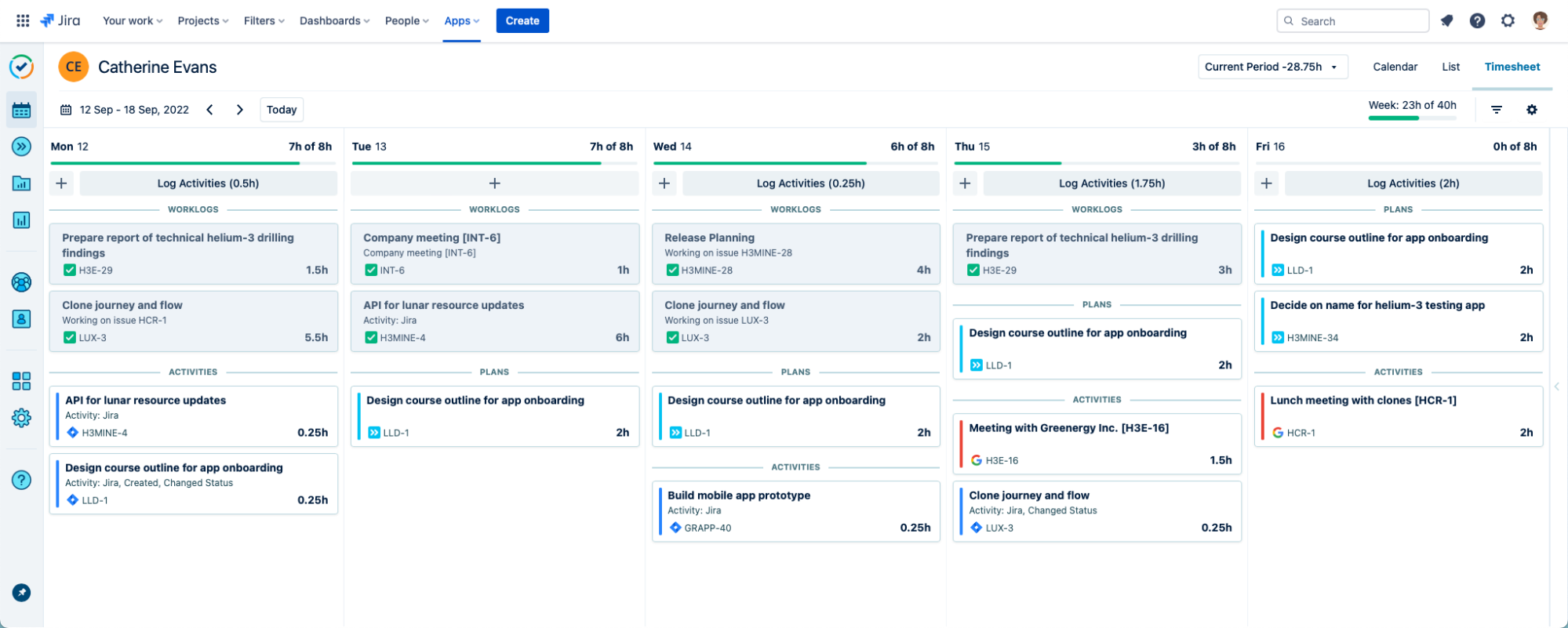
Tempo Leverages Tecton's Feature Platform to Power Its Time-Tracking Solution With AI

For Timesheets by Tempo, we're trying to ingest events, featurize them, score them with our models, and get those predictions to our customers in a few minutes. As someone who has built AI pipelines across various industries, I know how hard that is. With Tecton, I was able to create both a very fast online and offline feature store to serve our customers' needs. Plus, because the platform is time aware, I never have to be concerned about leaking information at training time either.”
Jon Morra
AI Advisor at Tempo
About:
Tempo, a leading provider of portfolio management solutions for product development organizations, is revolutionizing how to manage time-tracking for developers. The makers of Timesheets by Tempo, the most popular time-tracking app in the Atlassian Ecosystem, have brought the first-ever artificial intelligence (AI) powered time-tracking capabilities to the Atlassian Marketplace. Tempo leveraged their extensive data, AI, and Tecton’s feature platform to build a time-tracking solution that makes the time-logging experience for Jira users nearly frictionless.
Challenge:
The limitations of a rule-based timesheets product
Timesheets by Tempo’s rule-based solution had limitations in connecting calendar events (such as meetings) with specific Jira tickets. To minimize the friction associated with time-tracking, Tempo set out to use AI to help the system understand meeting contexts and provide accurate recommendations in real-time.
Solution:
Implementing AI-powered worklog recommendations in Tempo
Tempo assembled a team and integrated Tecton’s feature platform with their existing data warehouse, Snowflake, to create an AI-powered time-tracking solution. The system gathers activity data from various sources, such as integrated development environments (IDEs), calendars, and Jira, to provide personalized time-logging recommendations for users.
Results:
Tempo makes time-tracking nearly frictionless with an AI-powered solution
Tempo has successfully implemented an AI-powered solution to enhance its popular time-tracking cloud app, Timesheets by Tempo. The new solution leverages intelligent suggestions and connects relevant Jira tickets to user activities. As a result, users can log time nearly 50% faster and benefit from improved productivity. Less friction means more adoption, and more adoption means better visibility for management.
Ready to get started?
Tempo, a leading provider of portfolio management solutions for product development organizations, is revolutionizing how to manage time-tracking for developers. The makers of Timesheets by Tempo, the most popular time-tracking app in the Atlassian Ecosystem, have brought the first-ever artificial intelligence (AI) powered time-tracking capabilities to the Atlassian Marketplace. Tempo leveraged their extensive data, AI, and Tecton’s feature platform, to build a time-tracking solution that makes the time-logging experience for Jira users nearly frictionless.

Challenge: The limitations of a rule-based timesheets product
Product leaders need to understand how time is allocated in order to plan and manage projects and capacity effectively. However, for precise time-based reporting and analysis, employees must embrace time-tracking and input their time accurately. Employees who enter their time less frequently often perceive manual time logging as disruptive and time-consuming and, as a result, may hesitate to create worklogs. In order to make time-tracking fast, easy, and frictionless; encourage greater adoption of time-tracking; and obtain more accurate insights, Tempo sought to harness the power of AI to optimize its flagship Timesheets by Tempo cloud application.
As the most popular time-tracking app in the Atlassian Marketplace, Tempo has the industry’s largest amount of time and worklog data available. Leveraging AI was the natural next step to continue to innovate and minimize the friction associated with time-tracking. Their goal was to enhance their existing solution by providing more accurate and personalized automated worklog suggestions, improving the overall experience for both employees and product leaders who rely on the insights generated from accurate time-tracking.
Timesheets by Tempo’s existing rule-based solution operated as a batch process, analyzing various events, such as working in an integrated development environment (IDE), consulting a Jira ticket, or participating in calendar events. By assigning weights and priorities to these activities, the system surfaced suggestions for users to accept as tasks they had worked on throughout the day. However, this rule-based solution faced some limitations, particularly when it came to associating calendar events like meetings with specific Jira tickets. The true value of Timesheets by Tempo lay in understanding not just the duration of meetings, but also their contexts, such as the projects, clients, or products discussed.
Although the company had already connected their application with popular work apps developers use and integrated some automation, it still required linking a meeting with the correct Jira ticket for the relevant project or work activity—resulting in unnecessary cognitive load and distraction from the development work at hand. The system could perform a keyword search, but the vast amount of data and projects made this process inefficient. The company also understood that the rule-based approach would eventually reach its limits with regard to maintenance and adaptability. Tempo viewed AI as a potential way to further improve their recommendations, reducing users’ cognitive load and allowing them to efficiently log their time, enhancing productivity and user experience and providing the next step in the product’s evolution.

Solution: Implementing real-time AI-powered worklog recommendations in Tempo
Tempo assembled a team consisting of two AI engineers, two data engineers, a full-stack developer, and a team lead to address the challenge of creating an AI-powered time-tracking solution.
The team initially opted not to build their own feature store and began exploring available options.
After reviewing our options, we chose Tecton’s feature platform for its real-time serving capabilities, low-latency online serving, compatibility with our existing data warehouse (Snowflake), and ability to support our team as we ventured into AI technology for the first time.”
Rémi Desmarais
Director of Engineering at Tempo
After adopting Tecton and integrating it with their existing stack, the team began collaborating to develop the platform’s features and automate a system that pulls data from various sources, such as IDEs, calendars, Jira, and over 17 million worklogs tracked for active users, to provide personalized time logging recommendations for each user.
Tempo gathers the activity data from when you work in different “providers,” such as Jira, VS Code, and JetBrains. It also retrieves the event data from your connected Google or Office 365 Calendars so that users can easily see all their meetings. This data is streamed in real-time to a data warehouse, Snowflake, where it is processed and stored. The warehouse securely houses all user activities, as well as all Jira tickets created and managed by the customers. When a user accesses their timesheet to log their work, the system materializes features with Tecton. It serves those features through an API to generate recommendations for which Jira tickets users should log their work based on the specified timeframe.
Timesheets by Tempo leverages Tecton to process an average of 1 terabyte of input data every day, consisting of the following:
- 5 million action input events: These events capture user activities such as navigating to a Jira issue or committing code to a repository.
- 2.4 million intent input events representing calendar invites.
- 500,000 updated work items (e.g., Jira tickets).
- 1 million new worklogs created by users logging work from various methods and tools.
- 1 million task suggestion outcomes. The solution tracks the acceptance or rejection of suggestions as an accuracy metric and as feedback for online learning.
- 100,000 suggestions accepted by users logging work.
From this data, the team uses Tecton to design, generate, and orchestrate over 70 features, resulting in more than 27 million feature vectors.
With an average of 21 requests per second (RPS) and daily peaks between 50 and 90 RPS, the team architected a solution that includes an API gateway with a short-lived cache in front of cost-efficient on-demand serverless compute resources to deliver a p95 latency of 600 ms.
By leveraging the power of intelligent suggestions, the system streamlines the time-logging process and enhances overall productivity for individuals and organizations. Connecting relevant Jira tickets to the user’s activities, Timesheets by Tempo eases the cognitive load on users and streamlines the time-logging process, improving productivity and user experience.
Results: Tempo almost halves the time needed to log time
Tempo has successfully rolled out its AI-powered time-tracking solution for all cloud-based customers of Timesheets by Tempo, equipping product leaders and their teams with a fast and frictionless time-tracking experience. Some highlights:
- Advanced AI models are utilized to predict and display the most suitable worklog suggestions when logging time.
- AI models are deployed to accurately predict which Jira ticket associates with calendar events from which worklogss are created.
- The solution offers a seamless time-tracking experience, eliminating the need to switch between multiple applications to view and recall work activities and their corresponding times.
- Users can log time almost 50% faster, freeing up valuable time for developers to focus on more productive tasks.
- Improved adoption of time-tracking leads to more timely and accurate reporting and analysis, enabling better decision-making and project management.
The team continues to monitor crucial metrics, such as the number of suggestions generated, the acceptance ratio, and the accuracy of its models to evaluate the success of its new AI-based feature. Additionally, they have been focusing on reducing their APIs latency over recent months. This ongoing improvement effort highlights Tempo’s dedication to refining its product and providing an optimized user experience.
Preliminary metrics indicate that users who employ intelligent suggestions log time almost 50% faster than those who don’t, demonstrating improved efficiency and user experience for customers using Timesheets by Tempo. Furthermore, users are not finding it more challenging to log their work; on the contrary, the volume of worklogs created from suggestions has increased. Tempo recognizes that using suggestions considerably shortens the time needed to create a timesheet. Consequently, they believe that their AI-based feature delivers the intended benefits to their users, streamlining the work logging process and making it less time-consuming.
Although the expenses associated with implementing and maintaining the AI-powered solution exceed those of the rule-based system, the added value for customers and the organization in terms of market differentiation and future innovation potential justifies the investment. Moreover, Timesheets by Tempo stands out in the competitive landscape of time-tracking apps in the Atlassian Marketplace. As the No. 1 time-tracking app and one of the largest apps on the Marketplace, Tempo has established itself as a market leader. What sets it apart from other offerings is that it is the first and only Jira time-tracking app to incorporate AI for automating time-logging suggestions.


When we set out to productionize Timesheets by Tempo's first-ever AI model for suggesting user activities within a time frame, we needed a clear interface between the model and the stored event data. That's when we discovered Tecton's feature platform. It allowed us to connect to various data sources like Snowflake and Kinesis easily, define new features in Python, SQL, and PySpark, and automate feature transformations. It also allowed us to manage features as code and plan/deploy using CLI. With Tecton, we were able to serve features for training using the Python SDK and for inference using their REST API, streamlining the feature lifecycle."
Sidoine Montcho
Team Lead, Data Engineering & AI at Tempo
Future Plans: Leading the way toward automated portfolio management
Having successfully developed and deployed its first AI-powered solution, Tempo is now in a better position to understand the potential of AI and ML, and explore new possibilities to automate aspects of portfolio management. They plan to leverage their learnings and the features developed with Tecton’s platform for future endeavors, potentially reusing these features for new applications. Having recently acquired LiquidPlanner and Old Street Solutions, the Tempo team is driving toward a full end-to-end strategic portfolio management solution.
Tempo and Tecton, the successful implementation of AI technology and a winning partnership
Tempo’s successful implementation of Tecton’s feature platform for their AI-powered time-logging solution demonstrates the value and potential of AI technology in streamlining business processes and improving user experiences. By reducing the friction in the time-logging experience for developers, Tempo is helping organizations better understand where their resources are being spent, enabling more efficient time management.
Tecton enabled us to separate infrastructure constraints from core DS/ML work, allowing our team to focus on model building and deployment while DE experts worked on the feature store. We met our contract SLA of <800ms per request and resolved our high latency issues by switching to Tecton. As a small team with tight deadlines, Tecton's lower barrier of entry compared to Feast was crucial. We utilized Tecton's custom aggregations, scheduled materialization jobs, and alerting with Feature Services. Tecton's focused approach and fast response times outperformed SageMaker's feature store, which wasn't purpose-built as a standalone solution and had issues handling our data volume.”
Adeshola Afolabi
Senior Software Developer (AI) at Tempo
About:
Tempo, a leading provider of portfolio management solutions for product development organizations, is revolutionizing how to manage time-tracking for developers. The makers of Timesheets by Tempo, the most popular time-tracking app in the Atlassian Ecosystem, have brought the first-ever artificial intelligence (AI) powered time-tracking capabilities to the Atlassian Marketplace. Tempo leveraged their extensive data, AI, and Tecton’s feature platform to build a time-tracking solution that makes the time-logging experience for Jira users nearly frictionless.
Challenge:
The limitations of a rule-based timesheets product
Timesheets by Tempo’s rule-based solution had limitations in connecting calendar events (such as meetings) with specific Jira tickets. To minimize the friction associated with time-tracking, Tempo set out to use AI to help the system understand meeting contexts and provide accurate recommendations in real-time.
Solution:
Implementing AI-powered worklog recommendations in Tempo
Tempo assembled a team and integrated Tecton’s feature platform with their existing data warehouse, Snowflake, to create an AI-powered time-tracking solution. The system gathers activity data from various sources, such as integrated development environments (IDEs), calendars, and Jira, to provide personalized time-logging recommendations for users.
Results:
Tempo makes time-tracking nearly frictionless with an AI-powered solution
Tempo has successfully implemented an AI-powered solution to enhance its popular time-tracking cloud app, Timesheets by Tempo. The new solution leverages intelligent suggestions and connects relevant Jira tickets to user activities. As a result, users can log time nearly 50% faster and benefit from improved productivity. Less friction means more adoption, and more adoption means better visibility for management.